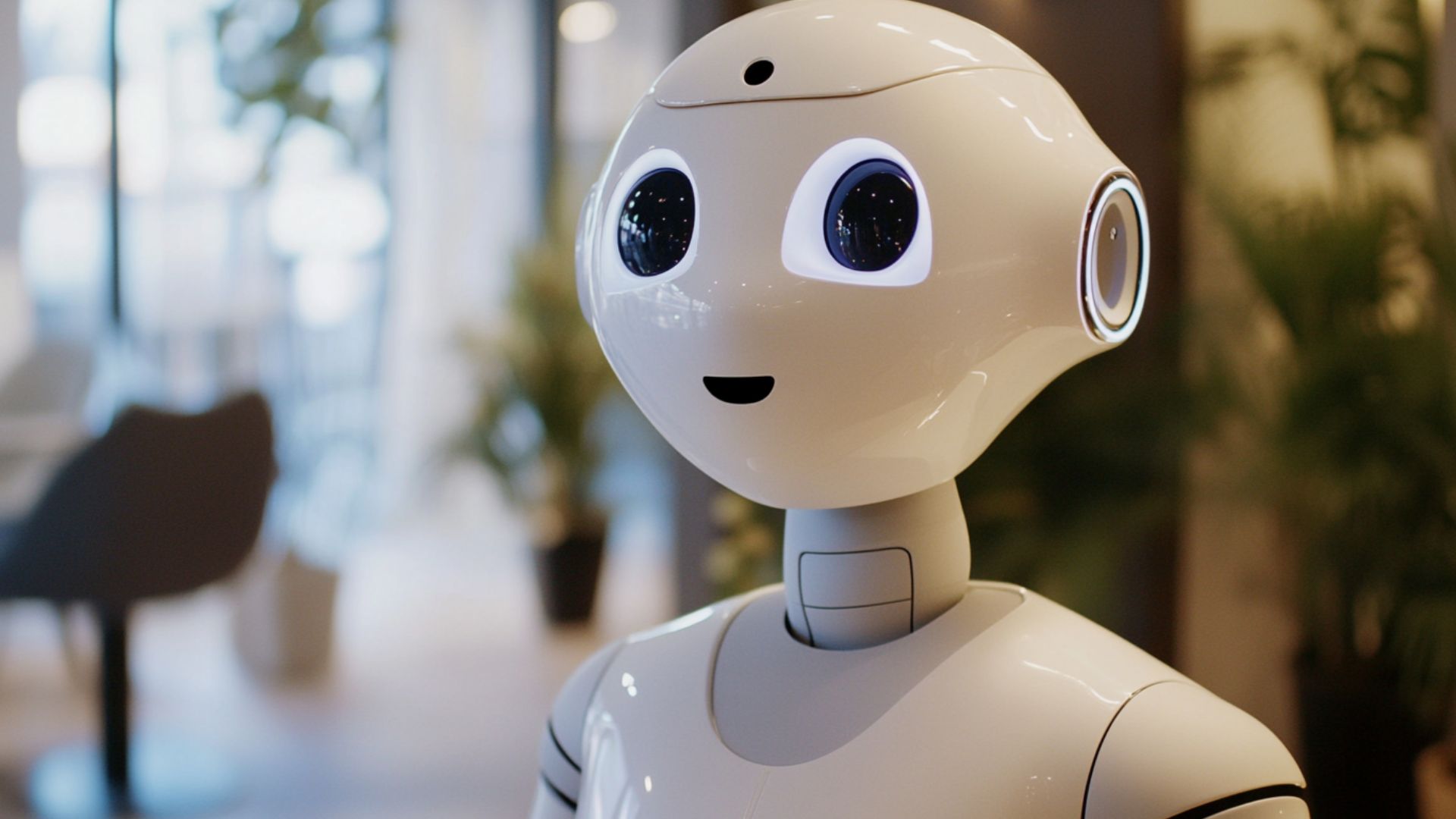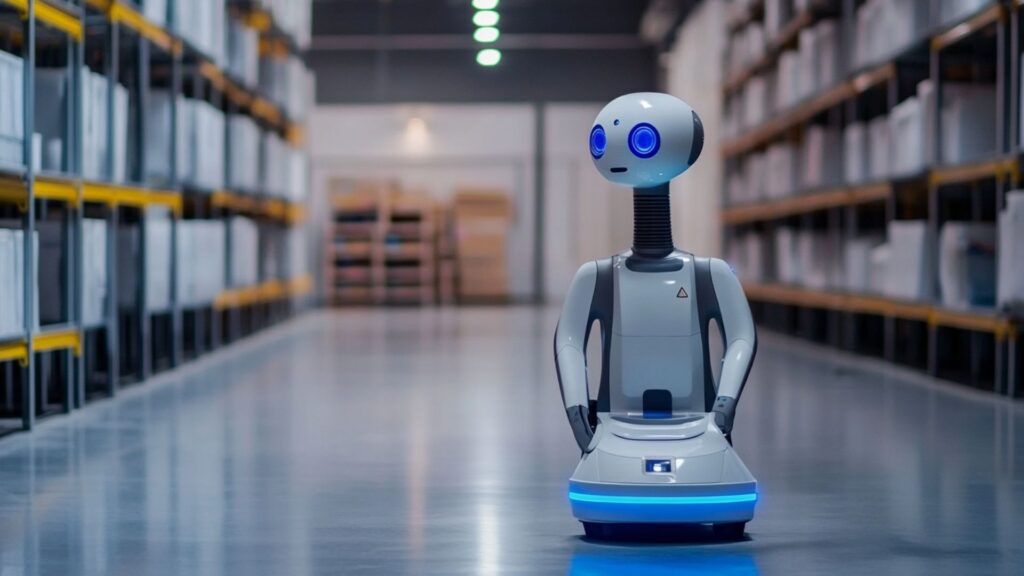What Is AI-Powered Automation? A Complete Guide

In today's world of technology and digital transformation, many challenges are being solved. Most companies choose the right strategies and tools to improve their business. Machine learning and natural language processing are essential for achieving success. Today, automation is reaching a new, more productive level. Traditional automation has always relied on specific rules and parameters set by a person. Work was carried out exclusively following the motive to achieve particular goals. AI-powered business process automation is a powerful driving force for success. The process uses natural language processing and machine learning.
Systems learn from both rules and data. Systems learn from user behavior and can analyze it in greater detail. Often, they make complex decisions based on this data. Such automation is quite popular in various industries that play an essential role for humans. Continuous improvement helps to go beyond the established rules and be more improved. In the world of digital transformation, high-quality tools play a significant role. AI-powered automation helps companies reach a competitive level. Equally important is good customer interaction and cost reduction for the company.
How AI Enhances Traditional Process Automation
Initially, the use of artificial intelligence was a big step. The evolution started from rule-based automation to intelligent automation. The process involved built-in strategies and using tools for repetitive tasks. Automation could handle different tasks and rely on specific rules. Robotic automation had special data to perform its functions. It started from the foundation of structured data to work. Data entry, information processing, and communication are all based on rules. It is important to understand that robotic process automation (RPA) is a good way for routine tasks. However, to improve adaptability and intelligent decision-making, they move to another stage. AI-powered automation is a new step to improve communication and minimize any errors. Here are the main key components that are used to enhance adaptability:
- Decision-making capabilities. One of the most significant advantages is that the systems use a specific plan. AI-based systems use different models. They analyze data and evaluate options to make the right decisions. They can also highlight specific scenarios and best practices that the company follows.
- Self-learning algorithms. Self-learning algorithms help to continuously improve and learn from past results. Using machine learning is a reliable way to research new trends. The issue of relevance and customer interaction is studied to improve business strategy.
- Adaptability. Process automation AI includes adaptability to improve business goals. Natural language processing is also used to communicate smoothly with customers. Predictive analytics is also important for monitoring future trends.
A vivid example of the use of such automation is finance. Artificial intelligence helps to improve security and detect the slightest fraud. AI-based systems analyze transactions and assess all risks. Additionally, the use of automation in healthcare is also no less important. Artificial intelligence automates the management of instruments and patient data. Correct diagnosis and the correct treatment process are supported.
From Scripts to Smart Systems: The Role of Machine Learning
Machine learning (ML) is a powerful tool based on artificial intelligence. This process moves from basic automation to intelligent automation. Machine learning learns from data and past customer interactions. ML learns to make new decisions without programming. Machine learning enables systems to analyze this data without a script. AI process automation includes machine learning to improve interactions. Here's how ML directly improves automation:
- Pattern recognition. Machine learning systems analyze historical data and past interactions. They recognize essential patterns that cannot be identified through conventional rules. Machine learning can detect various fraudulent actions and shortcomings in work. ML models can study user behavior and certain anomalies in their interactions.
- Anomaly detection. ML detects rules that may deviate from norms and established conditions. A prime example is detecting inventory shortages in a company to improve a smooth process. Machine learning can also detect various suspicious activities in financial fraud.
- Autonomous decision-making. AI in process automation includes ML for autonomous decision-making. Machine learning systems can detect certain patterns and make decisions based on them. Machine learning can analyze customer behavior and make decisions based on their interaction and mood.
Natural Language Processing and Workflow Automation
In the modern world of transformation, natural language processing (NLP) plays a significant role. Through NLP, systems can understand customer requests and provide the correct response. Any misunderstandings and errors are minimized. This enables the ability to automate tasks without human intervention. AI and process automation are indispensable in complementing each other. The use of NLP helps to interpret human language in the right way for companies. Here are the key applications of natural language processing in automation:
- Customer service. NLP is used to improve customer service and their experience. The use of chatbots and virtual assistants helps to improve the workflow. Natural language processing helps systems understand customer content and context. The system can provide constructive responses based on human data. Systems process large requests and track the entire order process.
- Document processing. AI for process automation is an integral part of success. Information extraction occurs depending on the context and settings. Often, natural language processing interprets human language in documents, invoices, and emails.
- Voice-activated business processes. Users can correctly interact with systems thanks to voice-activated processes. Based on natural language processing, the customer's voice and his emotions are recognized. Voice-activated processes help to increase efficiency and security. Understanding “what is AI automation?” Such tools are fundamental.
Benefits of AI for Business Process Automation

Businesses benefit from the use of improved automation. Thanks to artificial intelligence, the process changes functionality and improves the company's ratings. Work processes are integrated with the minimization of human errors. Companies can achieve great success using business process automation AI. Unlike traditional automation, improved automation can optimize operations without certain rules. Here are the main advantages of AI automation:
- Increase in efficiency. Employees can focus on higher-value tasks while systems process routine work faster. AI can complete complex tasks in minutes rather than hours.
- Scalability. Another key benefit is scalability with fewer employees. Systems can independently cope with large and routine tasks without the help of people. Account management, data storage, and customer inquiries are the responsibilities of the systems.
- Cost reduction. AI also provides the reduction in costs from manual labor of employees. Artificial intelligence requires investment and shows its result after some time. Businesses can save on labor, vacations, and sick leave.
- Accuracy and reduction of human errors. AI in process automation has many advantages, the main of which is accuracy and reduction of human errors. Systems can follow certain actions and detect specific errors based on data. Constant control and monitoring allow you to reduce human errors.
- Faster order fulfillment time. Additionally, the advantage is the fast order fulfillment time for customers. Various billing claims and loyalty checks are processed. Customers receive quick responses, improving their satisfaction with communication.
- Improved customer experience. Improved customer experience is an important advantage for maintaining the company's brand. Chatbots are constantly in touch with customers and provide constructive answers. Systems can provide personalized service for improved customer interaction. AI for process automation is an indispensable tool for achieving success.
Increased Efficiency and Cost Savings
Artificial intelligence is a great tool for increasing efficiency and saving money. Through automation, routine processes become streamlined and fast. Automation improves decision-making and brings the company to a competitive level. This approach identifies inefficiencies and directs all efforts to eliminate them.
- Reducing operational bottlenecks with AI. AI excels at processing massive amounts of data. This reduces manual workload and improves efficiency in the team. No less important is the optimization of workforce planning. Companies can minimize downtime and optimize their resources. AI powered automation is the best tool for detecting various fraudulent transactions.
- Supporting efficient workflows and saving money with AI. AI automates manual tasks, freeing employees for higher-value work. Equally important is constant control and monitoring to minimize any errors. Compliance with company requirements leads to improved strategy building. Artificial intelligence aims to reduce any downtime during operation. Process automation AI helps to predict new trends and any failures.
Scalability and 24/7 Operations
With AI, companies can achieve good scalability and 24/7 operation. Automation includes all processes with minimal human labor. Using machine learning analytics is the best tool. Here’s how AI provides scalability and supports 24/7 operation:
- Smooth processing of large volumes. AI can simultaneously process millions of data points. Transaction control and customer interaction are carried out. AI relies on tools to process multi-million dollar orders and analyze behavior.
- Resource allocation. There is a correct allocation of resources taking into account the load. Companies can identify trends and optimize their operations. Business process automation AI is best for understanding trends and ensuring the right amount of products.
- Integration. Integration between departments helps to achieve maximum interaction. Companies create an interconnected space for performing routine tasks. Often, the process helps to scale the company and maintain success.
- Customer support. Customer support is extremely important for good interaction. Virtual assistants and chatbots provide helpful answers 24/7. They can support customers and interact with them at a high level.
- Autonomy in tasks. Creating reports and updating stocks are also constantly monitored. Autonomous task execution automatically handles these processes. AI for business process automation is the best way to maintain work even during non-working hours. Routine tasks continue automatically to avoid downtime and reduce costs.
- Monitoring. Monitoring is the best way to control the entire work process. Artificial intelligence is given special attention in the fields of economics and accounting. Monitoring helps to avoid problems and improve cybersecurity.
Challenges and Risks of AI-Powered Automation

With the use of automation, companies achieve great success. However, it is important to remember specific problems and risks. Businesses may face challenges that could disrupt ongoing operations. For safe and effective implementation, it's essential to understand and address these risks. Here are the main problems:
- Data bias. AI process automation can have problems with data bias. Systems are unbiased, and they are constantly learning. If the data does not have diversity, artificial intelligence perceives it differently. The process can have a significant impact on customer service and decision-making.
- Security risks. Another big problem is the security and privacy risks due to constant information leakage. AI-based systems must be confidential and as protected as possible. In essential sectors, privacy and security play a key role.
- High setup costs. Setup costs and investments can be substantial. Software and different systems need constant examination. For small companies, the financial burden can be significant and cause problems.
- Displacement of the workforce. AI-powered automation may displace some workers. It is important to explain to employees that artificial intelligence is a great addition, not a replacement.
It is important to understand the ethical implications in different areas and ensure the right standards. Transparency and accountability help avoid these problems. Human oversight is indispensable to avoid errors and to keep things running smoothly.
Getting Started: Implementing AI Automation in Your Business
Implementing automation requires specific rules and guidelines. Following these rules will help you achieve success and productivity at work. A strategic approach will directly affect the workflow and its efficiency. Here are some tips for implementing automation:
- Remember that AI and process automation complement each other. First, start by identifying automation opportunities and workflows. Understand the strengths of automation and minimize any errors.
- Always define goals and success indicators for good results. Choose key indicators and monitor the process of reducing errors. Clear goals will help reduce costs and improve revenue.
- The right technologies and tools will give your business a competitive advantage. Consider various scalability and integration factors to improve the automated process. Familiarize yourself with machine learning and natural language processing to improve your work.
- Start implementing strategies and constantly test them for perfection. Use practical tools to improve customer interactions. Remember to monitor and improve continually. Use analytics to track your work process.
Equally important is training your staff and properly interacting with artificial intelligence. Make sure your staff understands how automation works and that it is not a replacement. Remember that human expertise and automation create a powerful combination.


